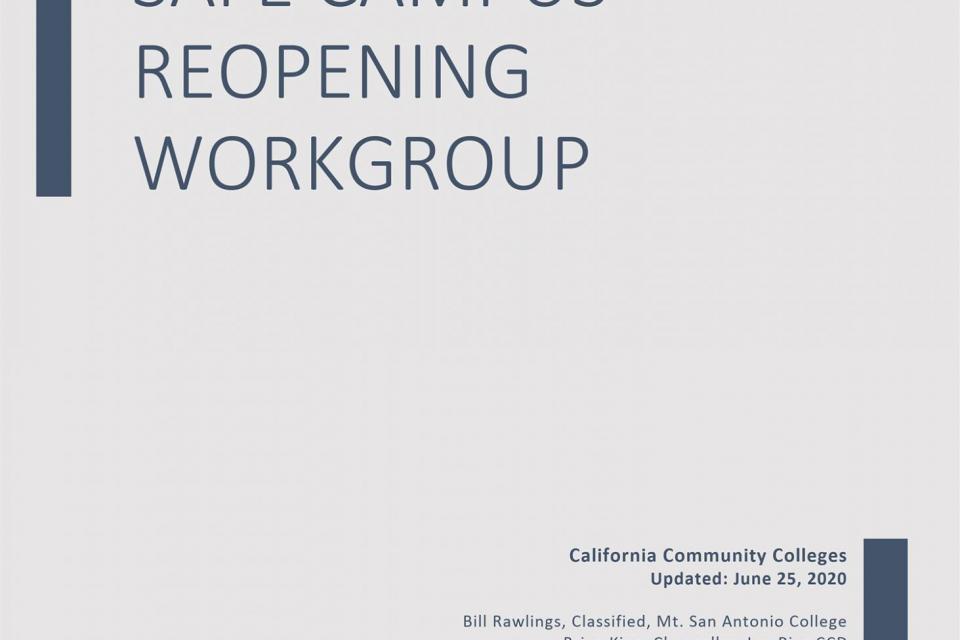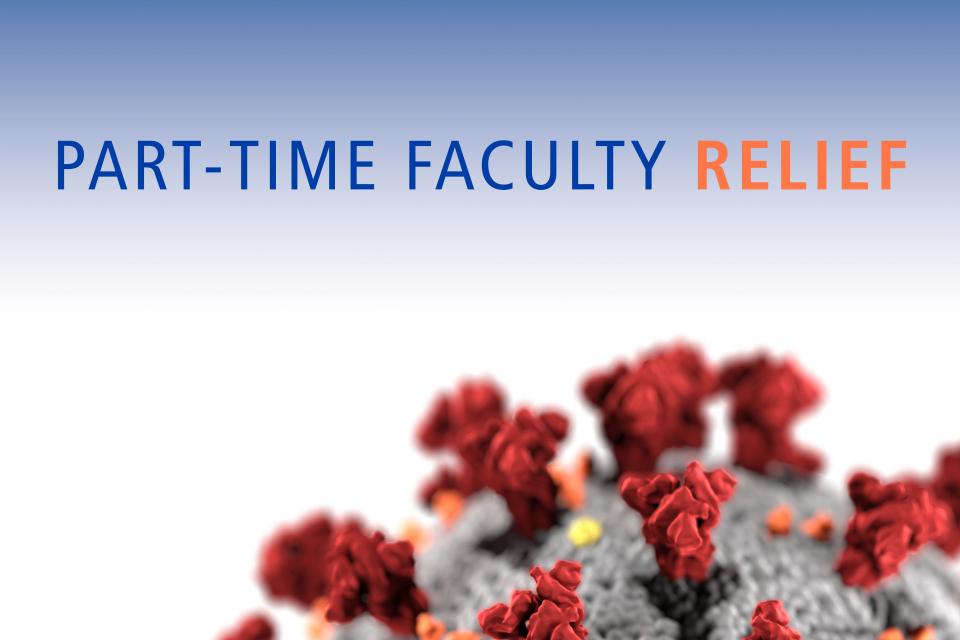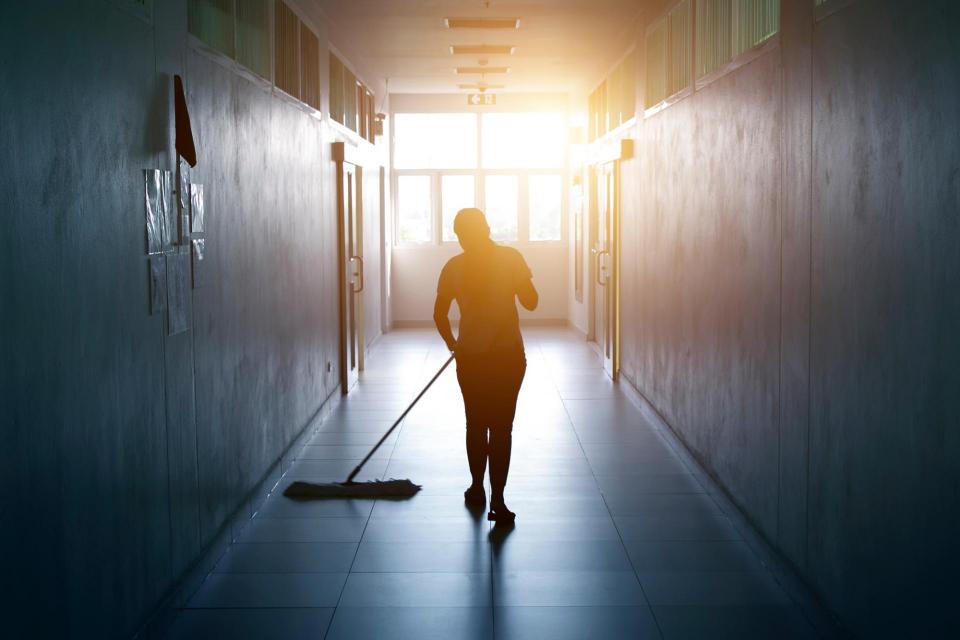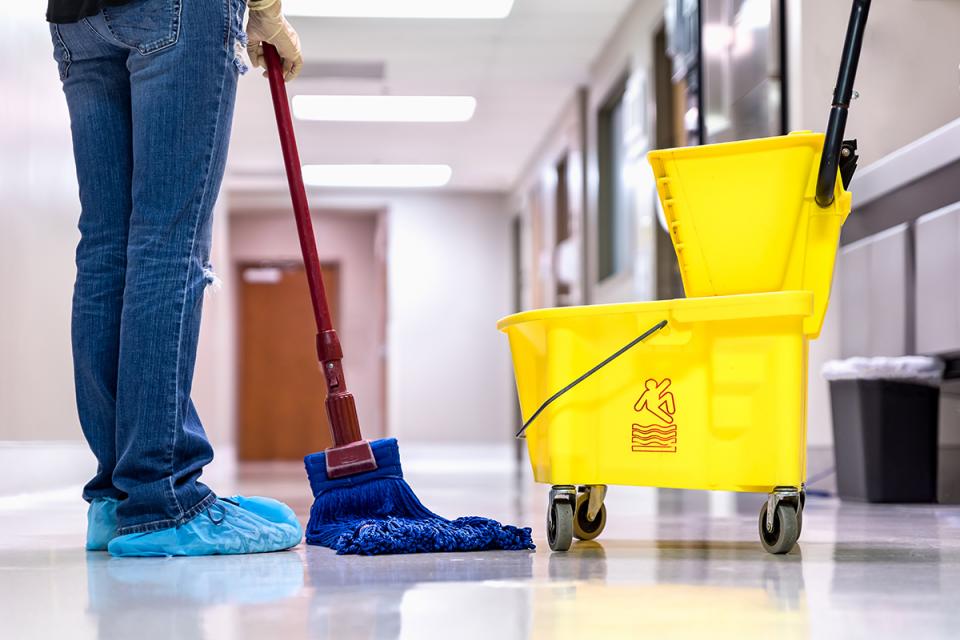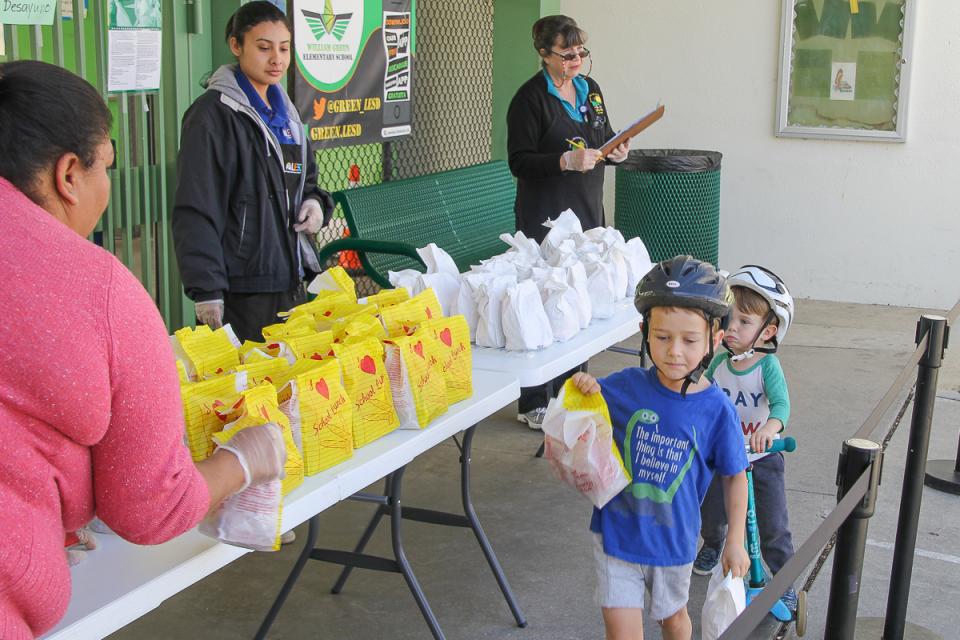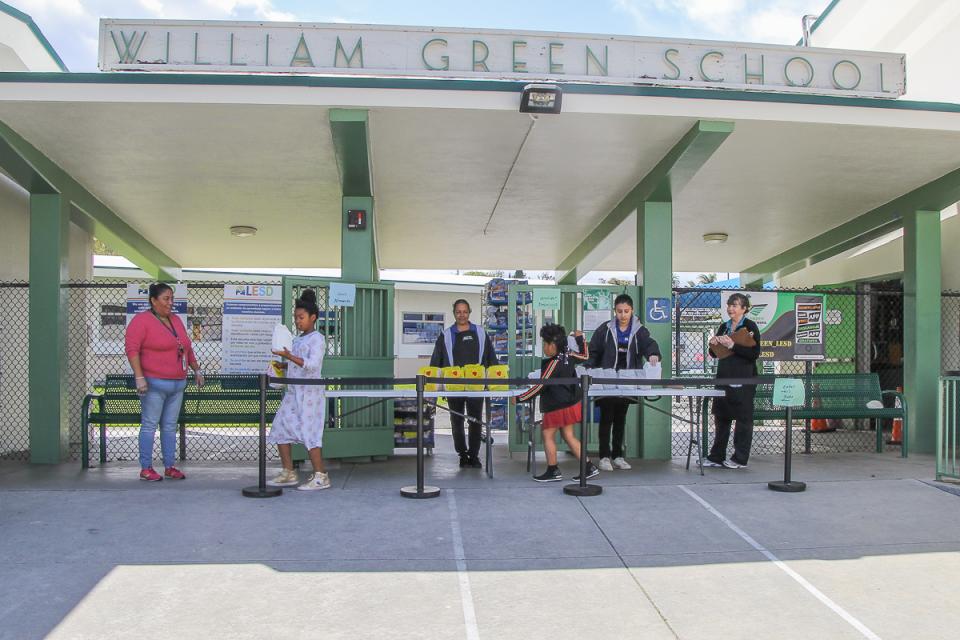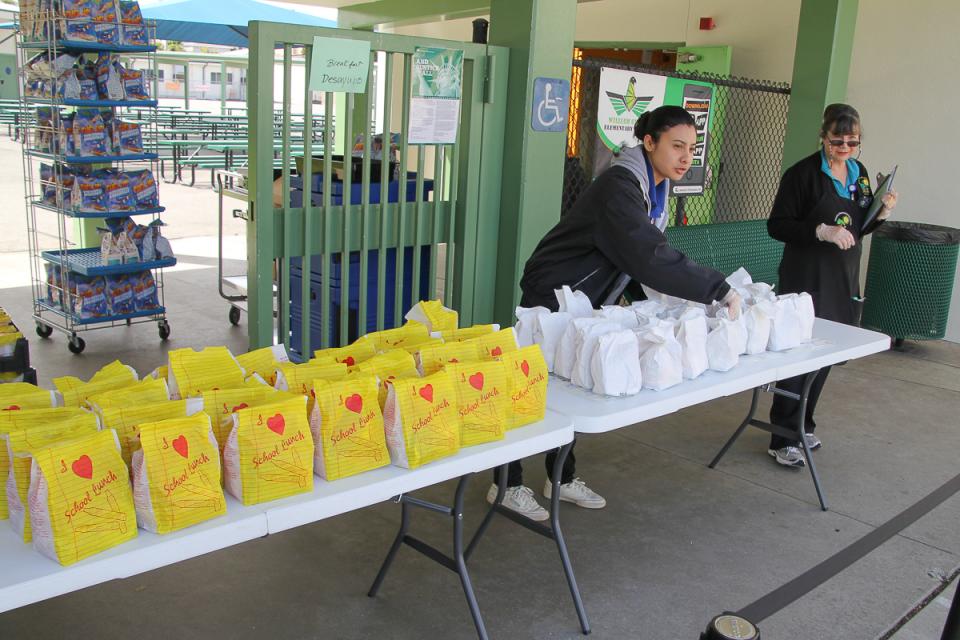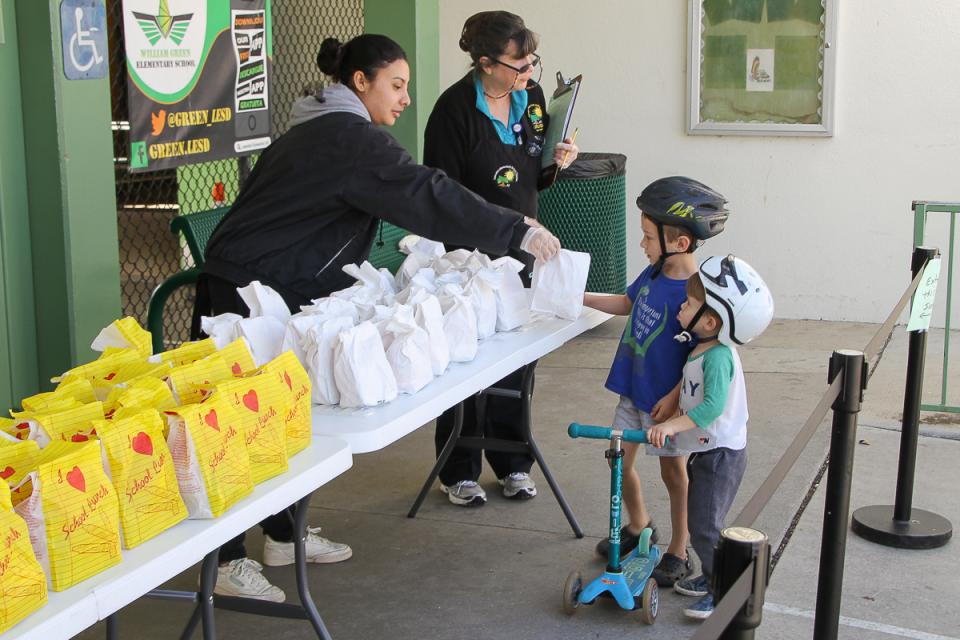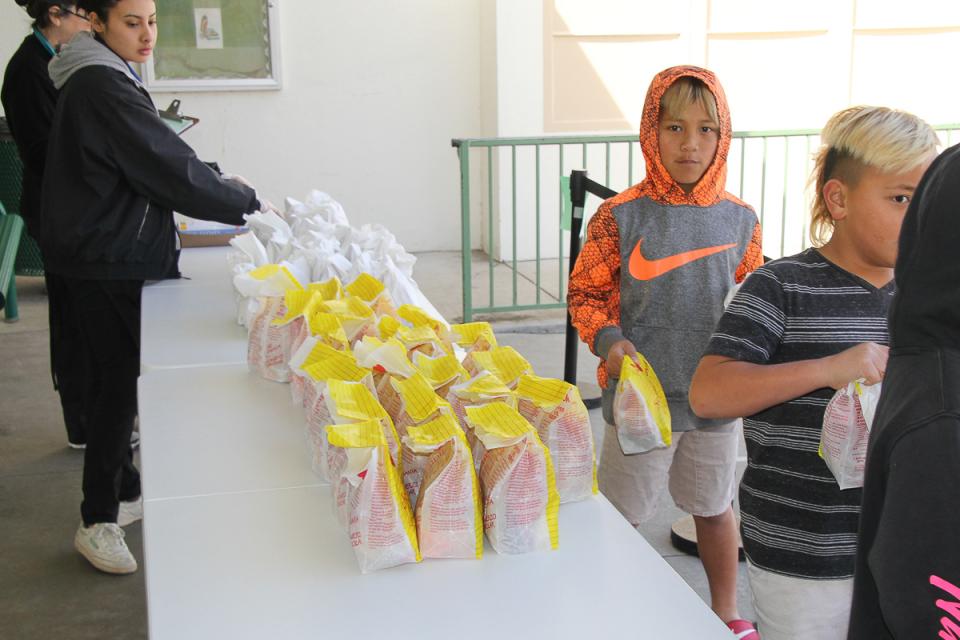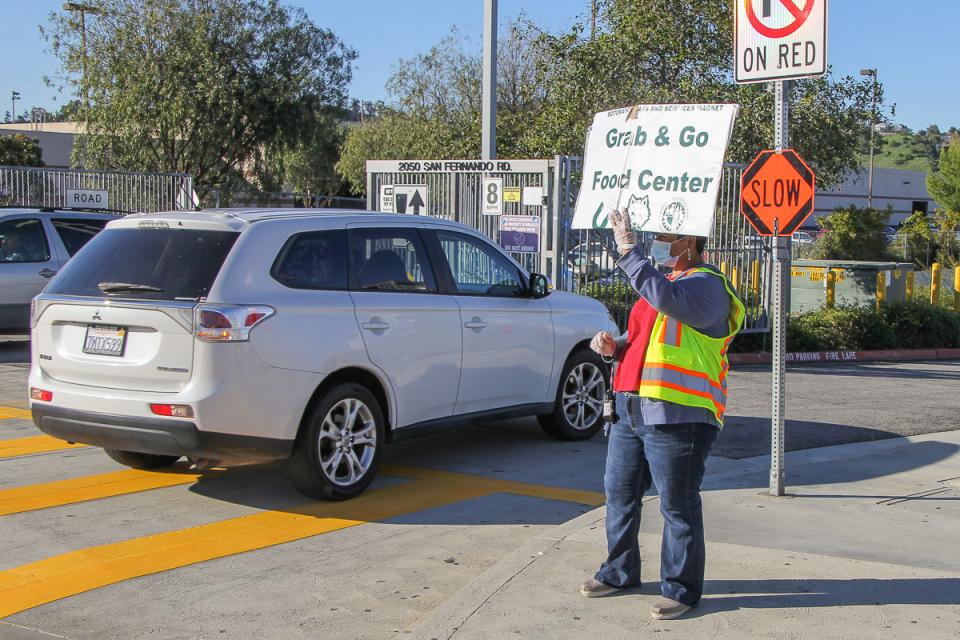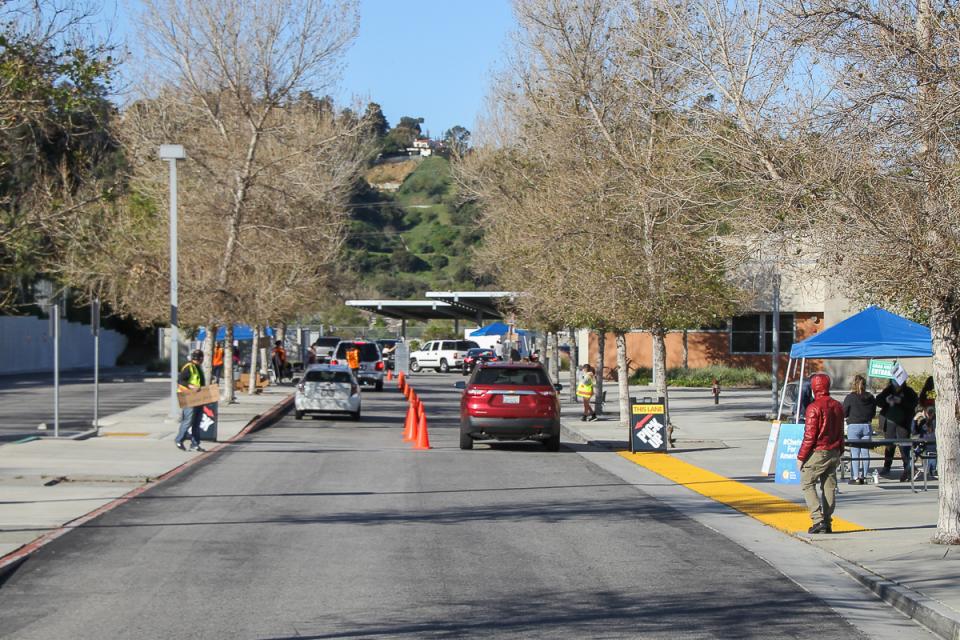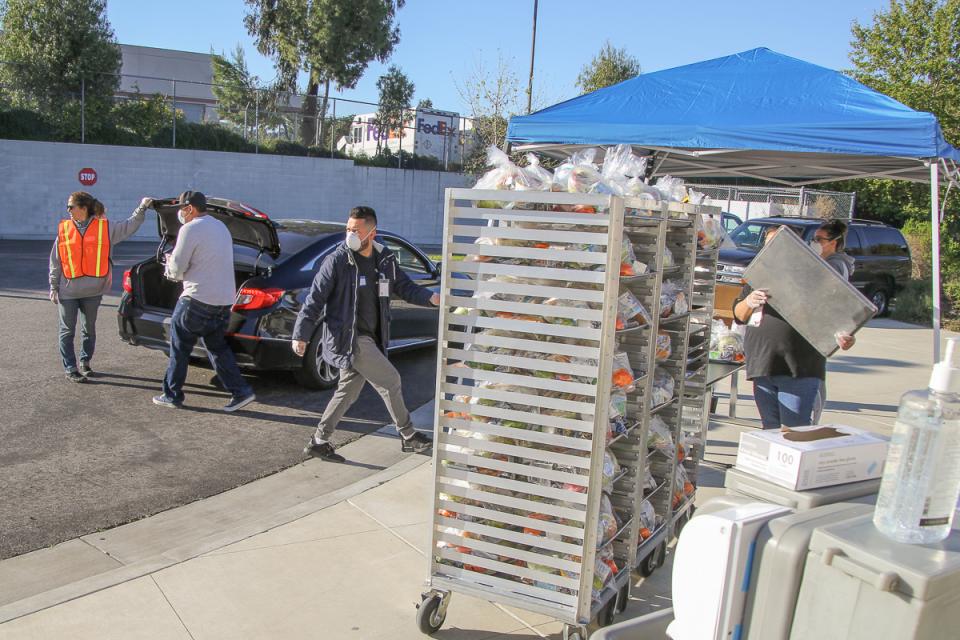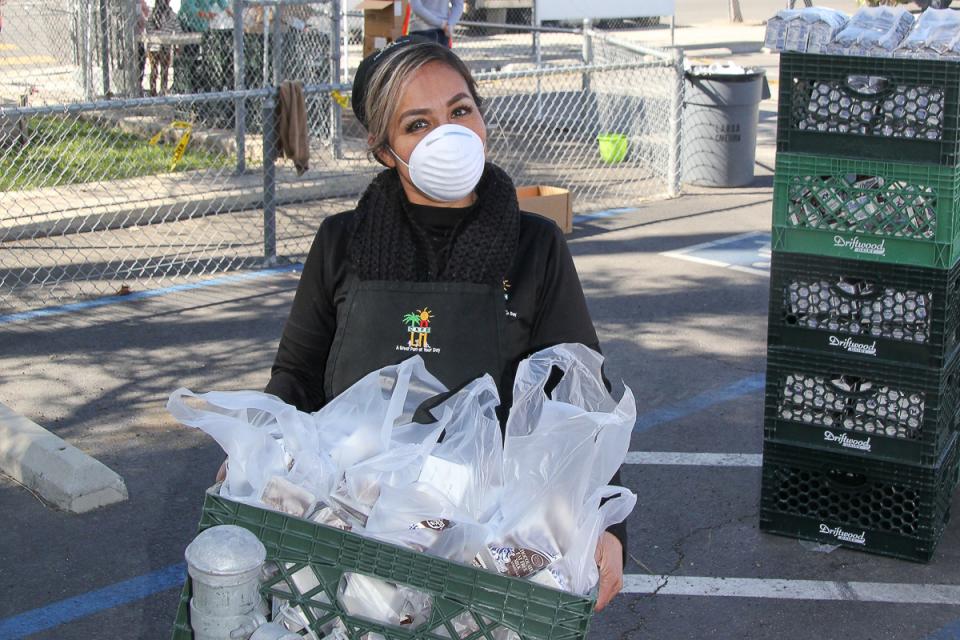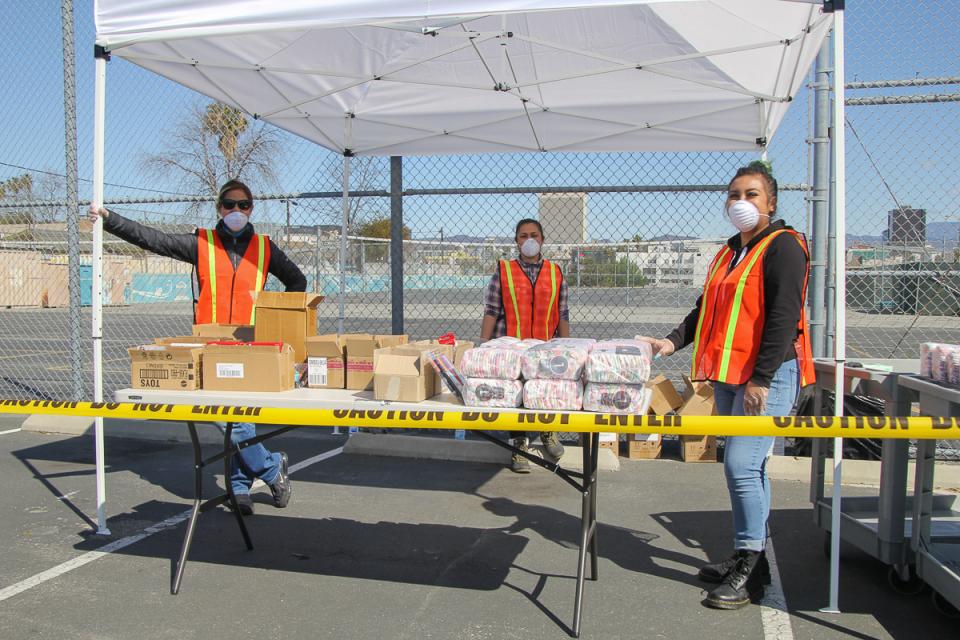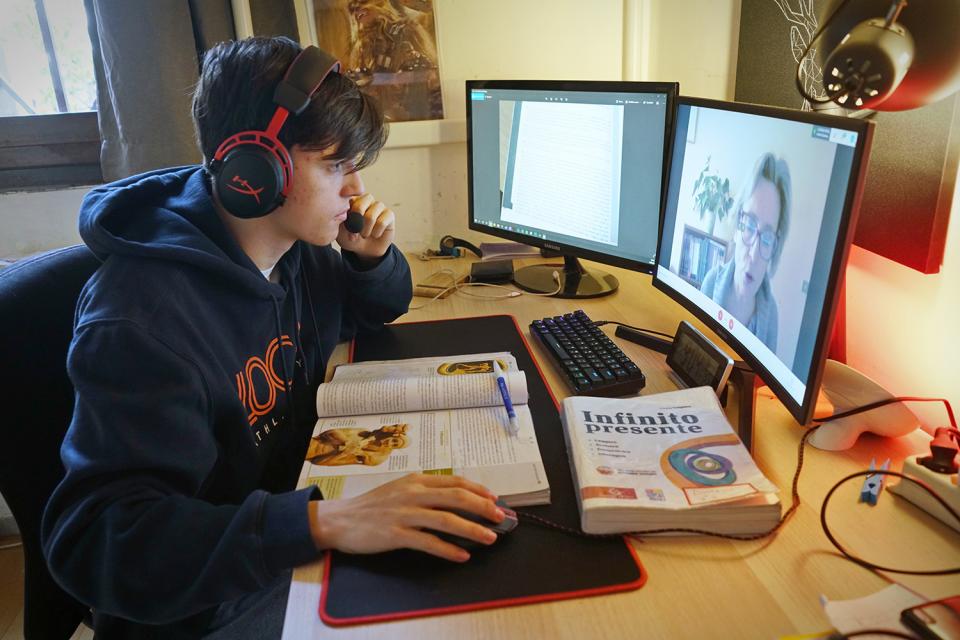Topic: Safe Workplaces
Distance learning resources for
PreK-University educators & staff
CFT's curated collection of resources for teaching and learning at home
Educators and parents alike need resources for at-home learning. Our thoughtfully curated collection of helpful and creative resources aims to assist educators and parents with learning at home — for all ages of students. Here you can find online resources by subject matter.
State Dept. of Public Health updates school reopening guidelines
CFT wants to see stronger guidelines
During his July 17 noon press conference, Governor Newsom announced statewide guidelines for reopening K-12 schools this fall.
While the governor addressed some of the demands that the union articulated to him and state leaders in the CFT letter sent on Monday, CFT still believes that there is more to be done to ensure the safety of California’s teachers, school staff, students, and communities.
CFT urges Governor Newsom to delay physically reopening schools
Surging coronavirus cases, testing woes make opening safely all but impossible
The CFT has asked Governor Newsom and state legislative leaders to delay the physical reopening of schools. Despite coronavirus cases surging throughout the state, growing numbers of hospitalizations and deaths, and mounting testing woes, some school districts are rushing to reopen — putting students, teachers, and communities at risk.
In a letter to state leaders, the CFT also urged the governor to provide stronger leadership and direction to school communities, who have been left on their own to make the difficult decision on whether it is safe to reopen schools.
California Community Colleges issue reopening guidelines
Task force develops guidance and recommendations
The California Community Colleges organized a high-level task force to create a roadmap of available resources for the safe reopening of community college campuses.
The task force report contains considerations and recommendations for the Chancellor’s Office. However, the broad recommendation of the Report of the Safe Campus Reopening Workgroup is that further action be undertaken locally by subject matter experts. This includes labor partners such as AFT local unions as well as state, federal and local governments, medical professionals, and those directly managing the pandemic response.
CFT Checklist for Safely Reopening Schools and Colleges
Key checkpoints for physical reopening in the time of the coronavirus
In the wake of the COVID-19 pandemic, schools and colleges across California were shuttered to prevent further spread of the coronavirus. Staff remaining on campus performed the challenging duties of distance learning support, meal preparation and pick-up, and deep cleaning to maintain educational services during shelter-in-place orders, as well as prepare for eventual physical reopening.
In the union’s document, Checklist for Safely Reopening Schools & Colleges, the CFT does not encourage the physical reopening of school sites until it is safe to do so. At a minimum, the CFT recommends coordination with state and local public health guidelines on every checklist item in this document to help prevent further spread of the coronavirus.
State Superintendent releases guidelines for reopening K-12 schools
For local discussion on safely reopening the education workplace
On June 8, State Superintendent of Public Instruction Tony Thurmond released guidance for reopening K-12 schools — Stronger Together: A Guidebook for the Safe Reopening of California’s Public Schools.
This guidance was created through the statewide reopening schools task force that fostered a collaborative process for educators and stakeholders, including the CFT.
Tell Congress to pass the HEROES Act!
Invest now to get America safely back to school and back to work
COVID-19 is triggering state and local budget crises across the nation. State and local governments are incurring huge new costs as they seek to contain and treat the coronavirus and respond to the virus-induced spike in joblessness and related human needs. At the same time, they are projecting sharply lower tax revenues due to the widespread collapse of economic activity brought about by efforts to contain the virus’ spread.
The task of reopening brings challenge and hope
By Jeffery M. Freitas, CFT President
In my communications with CFT members about school closures and sheltering in place during the past two months, I have often signed off, “Stay safe and take care.” For me, that is more than a convenient turn of phrase.
As we enter into the third month of the COVID-19 pandemic, we are in the midst of a crisis unlike anything most of us have experienced in our lifetimes, and when this story is retold years from now, I have no doubt it will be recorded as a turning point in history. I know most of you are, like me, tired, stressed, and worried.
AFT guidelines call for safe reopening of schools and communities
National union defines five key tenets for reopening
The AFT on April 30 released a detailed road map that, in the absence of a COVID-19 vaccine, charts a path to safely and responsibly reopen school buildings and other institutions crucial to the well-being and economic vitality of our communities.
The 20-page, science-based “Plan to Safely Reopen America’s Schools and Communities” sprung from an intense collaboration of public health professionals, union leaders and frontline workers to prepare for what happens next in the period between flattening the curve and truly eradicating the virus.
- Read more
- AFT Plan to Reopen American Schools and Communities
- AFT Plan to Reopen American Schools and Communities — Spanish
- AFT Guide to Bringing Parents, Patients, Students and Community Together to Reopen America's Schools Safely and Equitably
- AFT Guide to Bringing Parents, Patients, Students and Community Together to Reopen America's Schools Safely and Equitably – Spanish
Relief for part-timers and their families during pandemic
Unemployment Insurance, housing, utilities, student loans
In the wake of the COVID-19 crisis, part-time faculty — beyond dealing with protecting the health and safety of themselves and their families — are facing threats to their economic security, including loss of income, access to health insurance, and their capacity to pay for housing and utilities.
It is essential part-timer faculty are aware of recent actions taken by the federal government and state of California to provide relief for people facing these challenges.
Families First Coronavirus Response Act signed into law
Federal legislation expands sick leave, family leave
Congress passed and the president signed the Families First Coronavirus Response Act (FFCRA) which is effective from April 1, 2020, to December 31, 2020.
Congress also passed and the president signed the Coronavirus Aid, Relief and Economic Security (CARES) Act, which was effective on March 27, 2020. The CARES Act amended FFCRA with respect to some sick time provisions and also provided expanded unemployment insurance benefits.
Custodians on the front lines of COVID-19 pandemic
Keeping campuses clean, supporting food service workers
On Friday, March 13, Gov. Gavin Newsom ordered Californians to help slow the spread of the highly contagious coronavirus by keeping a “social distance” of six feet from each other.
School districts that were still operating suspended classes and college campuses emptied, but Newsom’s order continued full funding for public education and “essential” workers were told to report for work Monday.
Food service workers whip up millions of Grab & Go meals
Classified employees essential to feeding kids during pandemic
The coronavirus crisis has forced school districts of all sizes to come to grips with the food insecurity their students face.
“In my entire life, I have never seen a medical crisis taken as seriously as this one,” said Carl Williams, head of the Lawndale Classified Employees Federation. “We’re now implementing options we have never discussed before, like shutting down classrooms and teaching online.”
Health clerk looks back on early signs of pandemic
Veteran clerk teaches and practices good habits
For months, health clerk Cathy Pierce said, she and other school district staff heard about the coronavirus “like everyone else — bits of news and gossip.”
Pierce began to receive more credible information about COVID-19 and changes coming at all levels of government and education the week before Lawndale’s Mitchell Elementary shut in March. She has since come up the coronavirus learning curve, and now sees her work in a different light.
The CARES Act — federal stimulus becomes law
What you need to know about COVID-19 pandemic relief
The new bipartisan federal stimulus legislation, known as the CARES Act, was signed yesterday. The $2.2 trillion bill — the Coronavirus Aid, Relief, and Economic Security Act — is the third piece of federal coronavirus response legislation passed in recent days and contains significant new resources to assist in COVID-19 recovery.
The coronavirus, the CFT, and you
By Jeffery M. Freitas, CFT President
Over the past few days, our lives have changed significantly. There have been many fast moving coronavirus-related developments.
We will continue to work with decision-makers to protect you, your students, and your communities. With the situation continuing to develop quickly, we are doing our best to stay on top of it.
We want to provide as much information to our members as possible, but we hope not to overwhelm you with too much.
What does the overnight transition to “remote learning” mean?
For classroom faculty with traditionally scheduled on-campus classes
Note: This helpful article was written for a local community college audience, but many of the principles apply to all of higher education as well as K-12 education.
By Jim Mahler, President, AFT Guild, Local 1931, San Diego and Grossmont-Cuyamaca Community Colleges
Ten things to know about immunizations
1. Measles is highly contagious and deadly.
Before a vaccine was introduced in 1963, there were 4 million measles cases in the United States each year, resulting in 48,000 hospitalizations and 500 deaths. Measles was also a leading killer of children globally.
Lawsuit draws attention to hazardous chemicals on campus
When Susan Trask was 40, she went back to school and earned a degree in ornamental horticulture at Long Beach City College. Trask has since worked as a groundskeeper at the college district, and this year she was elected president of AFT Local 6108, the Long Beach Council of Classified Employees.
Our fight to win security doorlocks
The CFT’s persistent legislative efforts will lead to greater school safety
In a survey conducted by the Public Policy Institute of California this spring, 82 percent of public school parents and 73 percent of adults said they are concerned about school shootings. Another poll showed 57 percent of teenagers aged 13-17 were somewhat or very worried about a shooting in their school.





